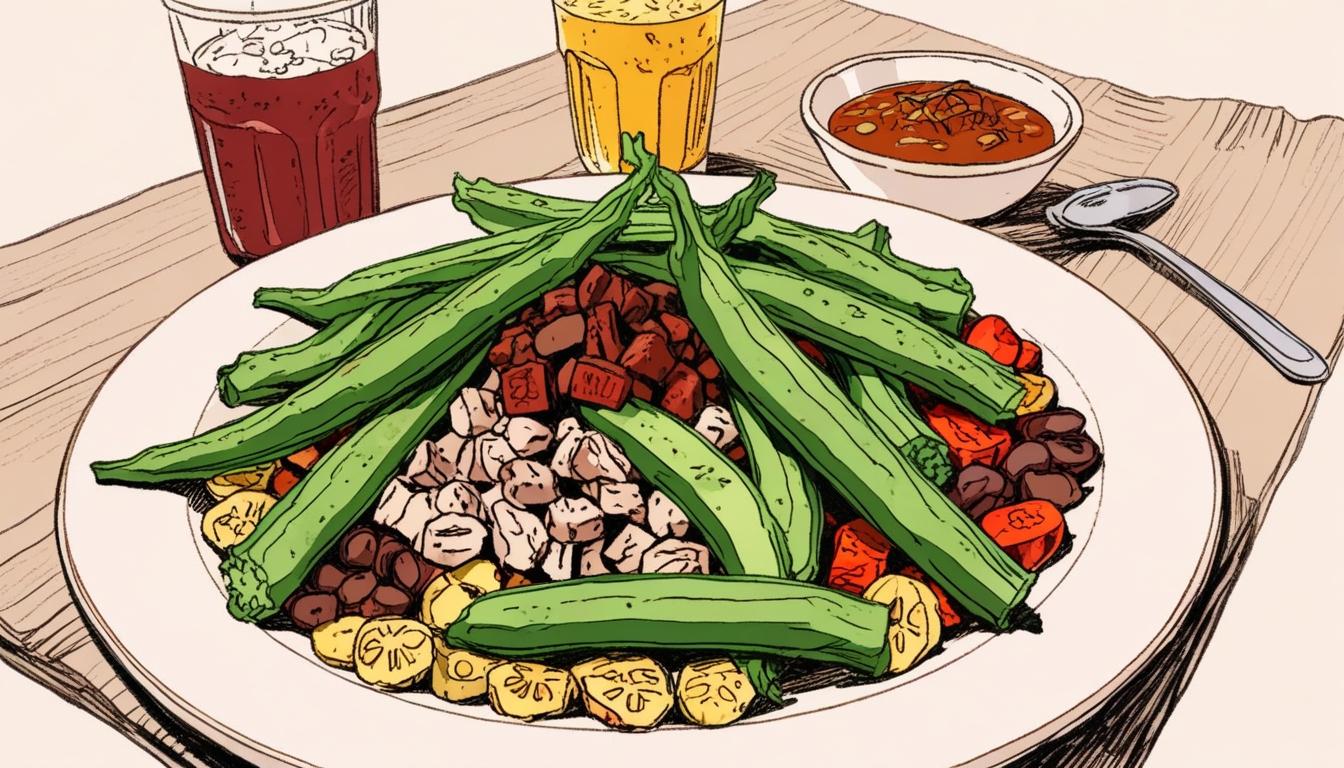A recent study led by Dutch researchers has brought attention to the traditional diet of Tanzania, known as the Kilimanjaro diet, which may offer health benefits comparable to the widely acclaimed Mediterranean diet. The research underscores the impact of unprocessed, natural foods in reducing inflammation and strengthening the immune system.
The Kilimanjaro diet, named after Mount Kilimanjaro, a volcano in Tanzania, emphasises ingredients such as okra, plantains, beans, and a fermented beverage called mbege made from bananas and millet. These foods form the basis of this traditional dietary pattern, which starkly contrasts with the processed nature of many western diets.
The study, conducted by researchers at Radboud University Medical Center in the Netherlands, involved 77 healthy Tanzanian men with an average age of 25. Participants were divided into groups where some switched from the Kilimanjaro diet to a typical western diet for two weeks, while others moved from a western diet to the Tanzanian plan. Foods characteristic of the western diet in the study included processed sausages, white bread, and fries, whereas the Kilimanjaro diet consisted mainly of corn, okra, plantains, kidney beans, and avocados. Another group consuming western food was asked to incorporate mbege into their diet.
Findings showed that those who switched from the Kilimanjaro to the western diet experienced elevated levels of inflammatory proteins in their blood and a reduction in the effectiveness of immune cells to fight pathogens. According to the study's authors, this indicates systemic inflammation and metabolic dysregulation connected to the western diet. Conversely, participants who adopted the Kilimanjaro diet had lowered inflammation levels, with beneficial effects lasting for up to four weeks after the study concluded.
Dr Quirijn de Mast, the lead author and an infectious disease specialist, told the Daily Mail: "Our study highlights the benefits of these traditional food products for inflammation and metabolic processes in the body. At the same time, we show how harmful an unhealthy Western diet can be."
Inflammation is a critical factor in many chronic conditions, which makes the implications of this study particularly relevant to health concerns prevalent in western countries. Despite these positive findings, Tanzania itself is not classified as a 'Blue Zone'—regions known for high longevity and low rates of chronic disease—partly due to an average life expectancy of 67 years, which is lower than the 77 years typical in the United States.
In comparison, countries known for following the Mediterranean diet, such as Greece and Italy, boast higher life expectancies of 82 and 84 years, respectively, and contain two of the world's five recognised Blue Zones. Nevertheless, cancer rates in Tanzania are considerably lower than in the US, recorded at 140 cases per 100,000 people compared with 445 per 100,000 in the US, although population sizes differ significantly.
Diabetes rates appear similar between the two countries, with roughly one adult in ten diagnosed with the condition.
Dietitian Sapna Peruvemba, speaking to VegNews, recommended that those interested in adopting the Tanzanian approach focus meals around vegetables, fruits, and legumes. She also highlighted the inclusion of fermented foods such as sauerkraut and kimchi, known for their probiotic content that promotes disease-fighting antibodies and anti-inflammatory compounds. Peruvemba remarked, "Don’t underestimate the power of returning to the basics."
This research invites further exploration into traditional diets worldwide and their potential role in promoting health and longevity through minimally processed, nutrient-rich foods.
Source: Noah Wire Services
